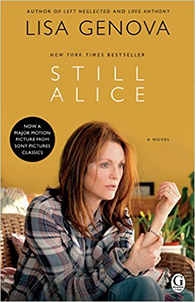More on this book
Community
Kindle Notes & Highlights
Plus, she liked being reminded of butterflies. She remembered being six or seven and crying
over the fates of the butterflies in her yard after learning that they lived for only a few days. Her mother had comforted her and told her not to be sad for the butterflies, that just because their lives were short didn’t mean they were tragic.
At some point, there would simply be no point. She wished she had cancer instead. She’d trade Alzheimer’s for cancer in a heartbeat. She felt ashamed for wishing this, and it was certainly a pointless bargaining, but she permitted the fantasy anyway. With cancer, she’d have something that she could fight. There was surgery, radiation, and chemotherapy. There was the chance that she could win. Her family and the community at Harvard would rally behind her battle and consider it noble. And even if
defeated in the end, she’d be able to look them knowingly in the eye and say good-bye before she left.
And while a bald head and a looped ribbon were seen as badges of courage and hope, her reluctant vocabulary and vanishing memories advertised mental instability and impending insanity. Those with cancer could expect to be supported by their community. Alice expected to be cast out. Even the well-intentioned and educated tended to keep a fearful distance from the mentally ill. She didn’t want to become someone people avoided and feared.
“You’re so beautiful,” said Alice. “I’m so afraid of looking at you and not knowing who you are.” “I think that even if you don’t know who I am someday, you’ll still know that I love you.” “What if I see you, and I don’t know that you’re my daughter, and I don’t know that you love me?” “Then, I’ll tell you that I do, and you’ll believe me.” Alice liked that. But will I always love her? Does my love for her reside in my head or my heart? The scientist in her believed that emotion resulted from complex limbic brain circuitry, circuitry that was for her,
at this very moment, trapped in the trenches of a battle in which there would be no survivors. The mother in her believed that the love she had for her daughter was safe from the mayhem in her mind, because it lived in her heart.
“My yesterdays are disappearing, and my tomorrows are uncertain,
so what do I live for? I live for each day. I live in the moment. Some tomorrow soon, I’ll forget that I stood before you and gave this speech. But just because I’ll forget it some tomorrow doesn’t mean that I didn’t live every second of it today. I will forget today, but that doesn’t mean that today didn’t matter.


